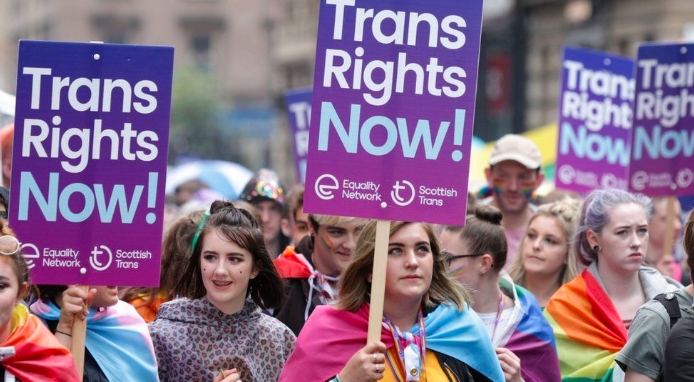What is the case about?
The Scottish government is challenging the UK government’s decision to block a bill that would make it easier for trans people to legally change their gender. The bill, called the Gender Recognition Reform (Scotland) Bill, was passed by the Scottish parliament in December 2023 with a majority of 68 votes to 55. However, it was prevented from receiving royal assent and becoming law by the UK government, which invoked a Section 35 order of the Scotland Act 1998 for the first time in history. The order allows the UK government to veto any Scottish legislation that it considers to have an adverse effect on reserved matters, such as equality law.
The Scottish government argues that the order is unlawful and violates the devolution settlement, as the bill was within the competence of the Scottish parliament and did not modify or supersede the reserved Equality Act 2010. The UK government contends that the order was justified and rational, as the bill would alter the meaning and effect of a gender recognition certificate (GRC), which is a reserved matter under the Scotland Act.
The case is being heard by Lady Haldane at the Court of Session in Edinburgh, Scotland’s highest civil court. The hearing began on Tuesday, 19 September 2023, and lasted for three days. The judge is expected to deliver her judgment on Friday, 8 December 2023, at around noon.
What are the main arguments of both sides?
The Scottish government’s case is led by Lord Advocate Dorothy Bain QC, the chief legal officer of Scotland. She claims that the UK government’s order was based on a policy disagreement with the Scottish government, rather than a legal concern. She says that the UK government “would have legislated differently” and that its intervention was “unprecedented, unwarranted and unlawful”. She also accuses the UK government of acting irrationally, by failing to consult or cooperate with the Scottish government before making the order, and by ignoring the safeguards and protections in the bill.

The UK government’s case is represented by David Johnston QC, acting for the Advocate General for Scotland, Lord Stewart, the chief legal officer of the UK government in Scotland. He denies that the order was a result of a policy dispute, and says that it was based on the effect that the bill would have on reserved law. He argues that the bill would amend or supersede the Gender Recognition Act 2004, which is a UK-wide law that sets out the criteria and process for obtaining a GRC. He says that the bill would change the definition and purpose of a GRC, by removing the requirement for a medical diagnosis of gender dysphoria, and by lowering the minimum age for applying from 18 to 16. He also says that the UK government acted reasonably and lawfully, by taking careful and considered advice before making the order, and by respecting the devolved powers of the Scottish parliament.
What are the implications of the case?
The case is seen as a landmark constitutional dispute that could have significant implications for the future of devolution and the relationship between the UK and Scottish governments. It could also affect the rights and recognition of trans people in Scotland and across the UK.
If the Scottish government wins the case, the UK government’s order would be quashed and the bill would receive royal assent and become law. This would mean that trans people in Scotland would be able to legally change their gender by making a statutory declaration, without needing a medical diagnosis or evidence of living in their acquired gender for two years. The bill would also allow non-binary people, who identify as neither male nor female, to obtain a GRC with an X marker, instead of an M or F.
If the UK government wins the case, the order would be upheld and the bill would remain blocked. This would mean that the current system for legally changing gender, which is based on the Gender Recognition Act 2004, would continue to apply in Scotland and the rest of the UK. Trans people would still need to provide medical evidence and meet other criteria to obtain a GRC, and non-binary people would not be able to obtain legal recognition of their gender identity.
The case could also set a precedent for how the Section 35 order of the Scotland Act is used and interpreted in the future, and how the UK and Scottish governments resolve any conflicts over devolved and reserved matters.


















